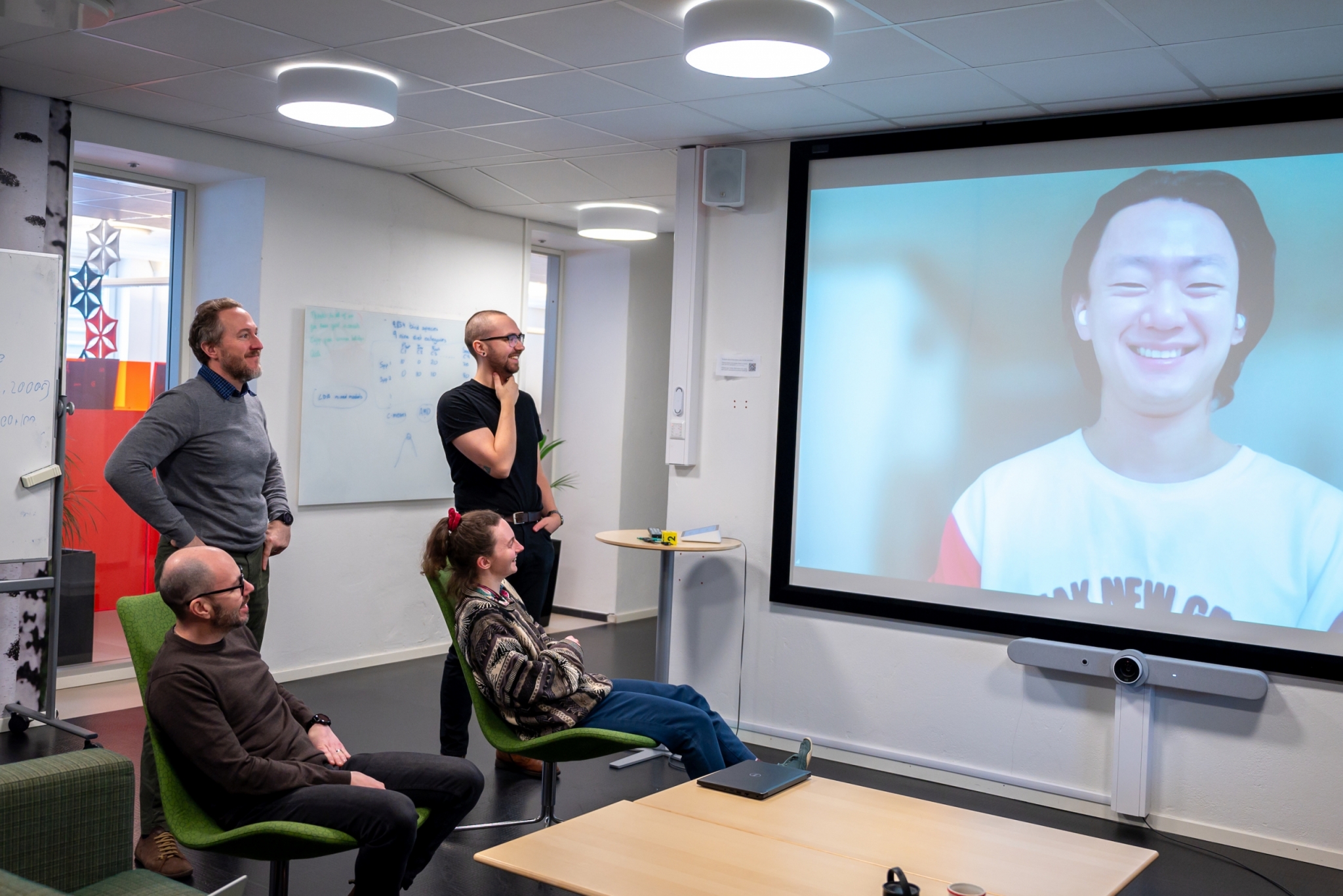Microbial eco-evolutionary research collaboration with Korea
A STINT-funded research collaboration exchange between IceLab and Korean researchers from Inha University kicks off with a visit to Incheon, Korea February 19th-28th. The research focuses on disentangling the effects of ecology, the environment, and evolution on microbial community dynamics.
A three-year international collaboration between Umeå University researchers Ludvig Lizana and Eric Libby (both IceLab members and associate professors from the departments of Physics, and Mathematics and mathematical statistics, respectively) with Hyejin Park, head of the Statistical Physics of Eco-Evolutionary Dynamics group at Inha University, South Korea launches next week.
The collaboration is funded by the Korea – Sweden Research Cooperation Programme; supported by STINT, the Swedish Foundation for International Cooperation in Research and Higher Education, and the National Research Foundation of Korea. Ludvig Lizana summarizes the main scientific focus for the research exchange:
“We wish to combine Hye Jin Park’s theoretical models for eco-evolutionary dynamics with IceLab’s species-level models developed to estimate microbial growth in different environments. Integrating these models into one framework allows us to study how small environmental changes at the species level can cascade into the evolutionary dynamics of populations.”
The current visit to Incheon, taking place from February 19th – 28th, 2024, will officially launch the project and include a workshop in ecological and evolutionary modeling at Inha University (https://sites.google.com/inha.ac.kr/meew2024/home).
“The core of the collaboration is visits, stays, and workshops. We aim to meet once every six months with alternating hosts,” says Ludvig Lizana.
The next meeting is planned for June 2024, when Hye Jin Park and several of her group members will come to Umeå.
Another core element of the project is to allow the younger researchers from the principal investigators’ groups to take part in the exchanges. In this first trip, Josephine Solowiej-Wedderburn, a postdoctoral fellow in Eric Libby’s group, and from Ludvig Lizana’s group Lucas Hedström, doctoral student, and Juhee Lee, postdoctoral fellow, will be joining the visit and presenting their research at the workshop.
“There is a tremendous opportunity for development and cultural exchange by providing our graduate students the chance to work closely and interact with academics from a non-European or Swedish University. We hope our planned activities will lead to future collaborative projects, not necessarily including the participating PIs.”
Long-lasting collaborations are forged
This is not Ludvig’s first experience with international collaboration made possible by STINT funding. Ludvig was first invited to Korea by Petter Holme and his Korean partner Beom Jun Kim (now at Sungkyunkwan University and former research assistant at the Physics department, UmU). After nearly ten years of being a research leader in Korea and Japan, Petter Holme is one of IceLab’s founding members and is now a professor at Aalto University in Finland. On that Korea trip, Ludvig was introduced to the tightly knit statistical physics community in Korea, and first met Hye Jin when she was Beom Jun Kim’s PhD student. Following that, Ludvig managed a STINT-funded Swedish-Korean collaboration grant (2016-2018) but with a different partner, institute, and research project (Jae-Hyung Jeon, POSTECH, Pohang).
“Connecting to this statistical physics community has been great in many ways. For example, they have helped share recruitment opportunities and I now have one postdoc in IceLab that came from that community – Juhee Lee – and another is joining us soon.”
Discovering Korean culture and enjoying the visit in non-scientific ways is another benefit, of course. While Ludvig has been to Korea many times now, there is always something new to discover.
“Eric convinced the group to attend a Korean comedy cooking show where performers demonstrate their knife skills and acrobatics. Vegetables may be harmed in the performance. Also, we will be visiting Ganwha island during the workshop, which has a fortress, temple and an observatory – and views to North Korea on a clear day!”

